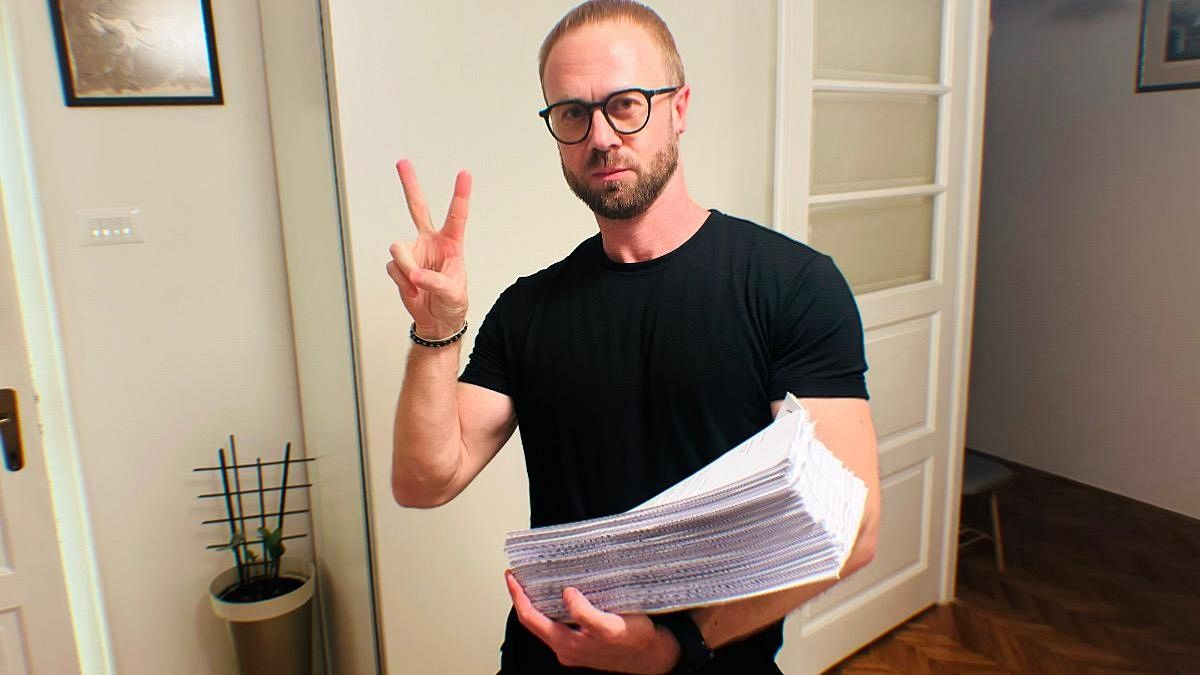Belarusian journalist, activist, and advertising director Andrey Gnyot is currently under house arrest in Serbia for tax evasion. However, human rights experts believe that this charge is merely a ruse to extradite him back to Belarus. Gnyot is wearing a tracking device on his ankle in an ordinary apartment in Belgrade, and fears that if his appeal fails and he is sent back to Belarus, he will face severe consequences due to his involvement in protests against President Aleksandr Lukashenko.
Gnyot believes that the extradition request is a result of his role in the protests, where he and others worked to bring down the Lukashenko government. The Belarusian journalist’s team says that the extradition request is driven by the regime’s desire to capture individuals who were actively involved in protesting and sharing videos of the demonstrations. The High Court in Belgrade has ordered his extradition, and Gnyot is awaiting a decision from the Court of Appeal by August 27th. If he is returned to Belarus, Gnyot is certain that he will face torture or death, as has reportedly happened to others who were considered political prisoners.
European countries rarely extradite individuals to countries like Russia, Belarus, and China due to the risks of political persecution in these nations. Lawyer and human rights expert Nikola Kovačević stated that Belarus’ request to extradite Gnyot is part of a plan to capture and try him for subverting the constitutional order. This move is seen as an attempt to make it easier for the authorities to extradite individuals like Gnyot, who have been vocal about their opposition to the Lukashenko regime. The Committee to Protect Journalists is advocating for Gnyot’s immediate release, emphasizing that Serbia should not participate in transnational repressions on behalf of authoritarian regimes like Belarus.
During the protests in 2020, Gnyot’s reports were utilized by Radio Svaboda, the Belarusian service of US Congress-funded broadcaster Radio Free Europe/Radio Liberty. However, the Belarusian authorities regard the radio station as an “extremist” group. Since the protests, Belarus has detained a growing number of journalists for their work, with reports from Human Rights Watch and Amnesty International highlighting instances of torture experienced by political prisoners in the country. As of December 2023, Belarus was ranked as the world’s third-worst jailer of journalists, with 28 journalists behind bars. In contrast, Serbia had no journalists in prison during the same period, except for Gnyot.
The situation surrounding Andrey Gnyot’s arrest and pending extradition has drawn attention to the lack of press freedom in Belarus and the risks faced by journalists who speak out against authoritarian regimes. With the support of organizations like the Committee to Protect Journalists, Gnyot continues to fight against his extradition and to shed light on the human rights abuses that have occurred in Belarus. As the international community monitors his case closely, the hope is that justice and freedom of speech will prevail for Gnyot and others who have been unjustly targeted for their journalistic work.











